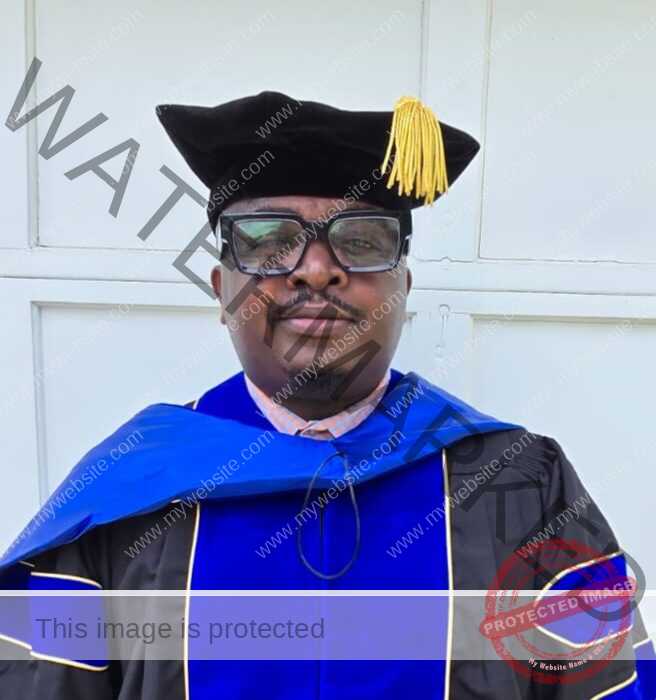Dr. Marcelius Atanga
Political Activist | Former Student Leader | Advocate for Justice and Independence of Ambazonia
Dr. Marcelius Atanga examines the recent political awakening in the country and says Issa Tchiroma Bakary’s Candidacy is a Signal to the end of the Biya hegemony in Cameroun. He writes.
In a move shaking the foundations of Cameroon’s post-independence political order, Issa Tchiroma Bakary—longtime insider of President Paul Biya’s regime—has resigned from his ministerial post and declared his intention to run for president in 2025. Far from a mere cabinet reshuffle, this moment marks the unraveling of a system that has held Cameroon in a chokehold for over four decades.
Tchiroma, once regarded as one of Biya’s fiercest defenders, has now turned his back on the very system he helped sustain. His break with the regime is more than symbolic—it is a glaring sign that the house of Biya is crumbling from within.
A VETERAN BREAKS RANKS
On June 24, 2025, Tchiroma stepped down as Minister of Employment and Vocational Training and announced his candidacy under the banner of the Front pour le Salut National du Cameroun (FSNC). His message is unmistakable: “Power to the people.” That slogan—Le peuple au pouvoir—is a direct repudiation of the gerontocratic state Biya has fossilized since 1982.
Let’s not mince words—Tchiroma was once the regime’s “megaphone,” especially during his time as Minister of Communication. He justified arrests, denied massacres, and whitewashed oppression. But his dramatic pivot now reflects a deeper truth: even the regime’s trusted guardians are abandoning ship.
This shift is not isolated. Bello Bouba Maigari’s candidacy, announced just days after Tchiroma’s, points to a broader fracture in Biya’s traditional northern stronghold. The myth of unity around the ruling Cameroon People’s Democratic Movement (CPDM) is evaporating before our eyes.
WHY THIS MATTERS TO ME
I speak not as an observer, but as someone who has faced the blunt force of Biya’s regime. I was there at the University of Buea during the student uprisings. I remember the tear gas, the rubber bullets, the fear—and the unwavering defiance. That struggle for academic freedom and democratic space was my initiation into resistance.
Later, as a leader in the Ambazonian revolution, I stood against the systemic marginalization of the English-speaking regions. We challenged a regime that weaponized language, manipulated law, and militarized the state against its own people. We did not fight alone—the hunger for justice stretches across Cameroon’s regions, from the arid north to the rainforests of the south.
For me, Tchiroma’s declaration is not redemption—it is revelation. It reveals the rot. It signals that even those who once drank from Biya’s cup now know the regime is finished.
END OF AN ERA, START OF A RECKONING
At 92, Paul Biya is no longer a leader—he is a symbol of stasis. He governs not through consent, but through coercion. And yet, no amount of decrees or deployments can stop history. The regime’s slow collapse is now being accelerated by internal dissent.
That’s what makes Tchiroma’s candidacy significant. Not because he represents the future—he doesn’t—but because his defection confirms the end of an era. What we’re witnessing is not simply political realignment. It is a generational reckoning.
The system is collapsing. Our job is not to choose which recycled politician replaces Biya. Our duty is to imagine and build what comes after.
A NATION AT A FORK IN THE ROAD
Cameroon now faces a choice: recycle or renew. One path leads back to repression dressed as reform. The other leads to a more just and inclusive society. The real transformation must go beyond party names and campaign slogans. It must confront structural injustice. It must redistribute power. It must rewrite the social contract.
Tchiroma’s past is stained. But if even he now denounces the system, then what are we—citizens, activists, thinkers, and dreamers—still waiting for?
This is not the time for silence. It is the time for strategy, solidarity, and sacrifice.
CONCLUSION: FROM CRACK TO COLLAPSE
I do not endorse Tchiroma. But I acknowledge what his break represents. It is a crack in the concrete wall of dictatorship. And where there is one crack, others will follow.
Cameroonians must seize this moment. From Buea to Bamenda, from Garoua to Bertoua, we must rise—not to follow another strongman, but to dismantle the very system that gave him power.
The old Cameroon is dying. And we—those who suffered, struggled, and survived—must build the next one.
Dr. Marcelius Atanga
Political Activist | Former Student Leader | Advocate for Justice and Independence of Ambazonia

